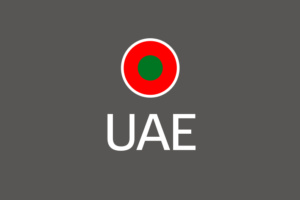New UAE Mandatory Savings Plan Enacted
 Employers in the United Arab Emirates (UAE) at the Dubai International Financial Centre (DIFC) are now required to contribute to a new defined contribution savings plan called a DIFC Employee Workplace Savings Scheme (DEWS).
Employers in the United Arab Emirates (UAE) at the Dubai International Financial Centre (DIFC) are now required to contribute to a new defined contribution savings plan called a DIFC Employee Workplace Savings Scheme (DEWS).
Employer contributions
Minimum contribution rates are roughly the same as the End of Service Gratuity (ESOG) which is the UAE’s former employer-sponsored savings scheme.
- 83% of basic salary is the minimum contribution for employees with less than five years tenure.
- 33% of basic salary is the minimum contribution for employees with at least five years of service.
“The DIFC has always been at the forefront of innovation and a beacon for the Middle East and Africa’s financial centers, says Anthony Cerchiai, Asinta’s Partner in the UAE. “Having DEWS in place gives solid protection to employees and employers through a perfectly regulated platform managed by international experts. This new benefit will meet the best international practices and it will be a crucial way to help employers retain the best talent in the financial world.”
DEWS gives over 2,300 DIFC employers access to a structured, professionally managed plan that lowers business risk. Also, employees can now better understand what they have in their legacy EOSG, as well as their savings in the new program. This helps them better align their investment profiles to their risk tolerance.
What about employees with accrued ESOG?
According to the DIFC website:
At the changeover date, employers have the following choices with regard to their accrued EOSG:
- You can continue to manage it as you have done in the past. In this case, at service termination the employer will be liable to pay the employee the accrued EOSG in line with the service period as at the changeover date and last drawn salary.
- Employers can transfer the accrued EOSG with employee consent into DEWS: The employer can get written consent from the employee and transfer an agreed amount, that is no less than the entitlement calculated by reference to a termination payment under DIFC Employment Law, into the DEWS Plan. In doing so, the employer is no longer liable for the payment of the accrued EOSG to the employee when employment is terminated, irrespective of any future salary increases and/or length of service. In addition, the employee accepts the ongoing investment risk.
- Employer can transfer the accrued EOSG without employee consent: The employer can also choose to transfer the accumulated benefit without employee consent. This will be held in the plan, as a pooled fund, under the employer’s name and they can decide how the amount is to be invested. The employer will still be liable for settling each employee’s accrued EOSG entitlement when they leave service and they can take withdrawals from the fund to achieve this.
Employees with under a year of service
Also according to the DIFC website, employees with under a year of service:
- Employees who leave their employment before completion of one year, that employee would not be eligible for End of Service Gratuity under the old regime, but would receive the payment that has been made into DEWS from February 1st.
- If the employee leaves employment after completion of one year, they would be eligible for End of Service Gratuity under the old regime, and should be paid that amount for the period of service prior to February 1. This needs to be calculated based on the last drawn salary. The employee would additionally be paid the amount accumulated under DEWS.
Penalties for non-compliance
The effective date to implement DEWS was March 31, 2020 which includes having a certificate of compliance by the DIFC Authority. The DIFC Authority can issue employers a fine of up to US$2,000 per employee who is not part of a DEWS scheme.
Which employees are exempt?
Exempted employees include:
- GPSSA citizens
- Art 4(2) Employees (Secondment, Govt employees, Presidential exemption)
- Under notice on 01/02/20 or under a fixed contract that ends within 3 months
- Equity Partners.
Those who are not in receipt of a basic salary do not have to enroll into DEWS, but can opt in. It also means those on unpaid leave, sabbatical etc. are not entitled to mandatory contributions.
This article is provided by the employee benefits consultancy Nexus, who is Asinta’s Partner in the UAE.
